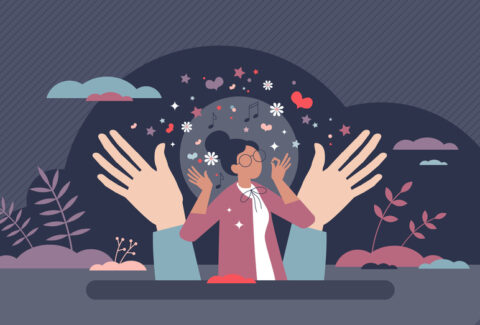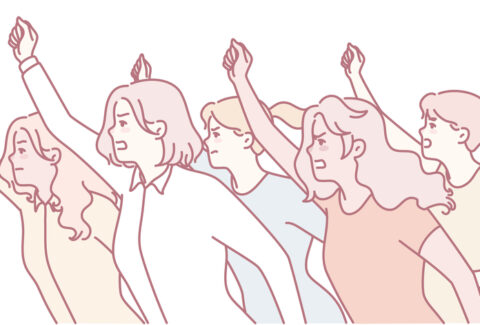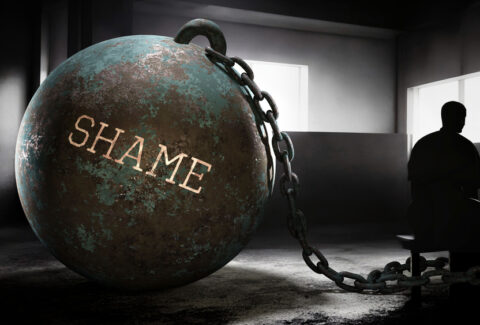Silence as a Weapon: The Subtle Forms of Internalized Oppression
Silence often appears harmless. It can seem like restraint, politeness, or even wisdom. But for many people living with internalized oppression, silence is not neutral; rather, it is a weapon, sharpened over generations, aimed inward. This silence does not simply hold back words; it holds back power, visibility, and the chance to challenge oppression at its roots.
When Silence Becomes Self-Oppression
Silence can take many forms: not speaking up when disrespected, withholding ideas in professional spaces, avoiding conversations about race or inequality, or even suppressing one’s own feelings. On the surface, this might look like a personal choice. But silence in the context of oppression is often a survival strategy that has become internalized, turning against the very person it was meant to protect.
Paulo Freire (1970) described internalized oppression as “the colonization of the mind,” where the oppressed take on the values and behaviors of the oppressor. Silence is one of the clearest expressions of this colonization. When people internalize the belief that their voices are not worthy or that speaking up is dangerous, silence becomes not just external compliance but an inner dialogue of submission.
Silence as Social Control
Research in sociology and psychology demonstrates how silence functions as a mechanism of control. Studies on stereotype threat show that people who anticipate being judged harshly based on their identity often self-censor, leading to reduced performance and participation (Steele & Aronson, 1995). Silence becomes both a symptom and reinforcement of structural inequality.
Even in professional settings, silence disproportionately affects marginalized groups. A study on workplace dynamics found that women and people of color often hold back ideas, fearing dismissal, ridicule, or retaliation (Cortina, 2008). This absence of voice diminishes innovation, but more importantly, it perpetuates the false notion that these individuals have less to contribute.
The Psychological Toll of Silence
Silence is not peaceful when it is coerced; it is corrosive. Holding back expression leads to internal stress, anxiety, and depressive symptoms. Neuroscience research shows that unexpressed emotions activate the amygdala, the brain’s fear center, creating a constant background of hypervigilance (Davidson & McEwen, 2012). Over time, this silent repression is linked to worse physical health outcomes, including elevated blood pressure and compromised immune response.
More than that, silence reinforces self-doubt. When someone repeatedly withholds their truth, they begin to believe that truth does not matter. This erodes self-esteem and reshapes identity. What starts as silence in one context, say, in the classroom or boardroom, can spill into relationships, families, and entire communities.
Breaking the Silence: The First Step Toward Liberation
If silence is the weapon, voice is the antidote. Speaking up does not always require a public platform; it begins in the smallest of moments: correcting a stereotype, naming a microaggression, or even journaling unspoken truths.
In therapeutic contexts, breaking silence is often the turning point. Narrative therapy and liberation psychology both emphasize that telling one’s story out loud interrupts cycles of internalized oppression (White & Epston, 1990; Martín-Baró, 1994). When silence is replaced by language, the invisible becomes visible, and power shifts.
Community spaces that encourage dialogue are equally vital. Healing circles, support groups, and mentorship models allow people to not only speak but be heard, validated, and amplified. As Audre Lorde (1984) famously declared, “Your silence will not protect you.”
Reflection Questions
- In what situations do you find yourself choosing silence?
- What messages, spoken or unspoken, have taught you that silence is safer than speech?
- How might breaking silence, even in small ways, shift your sense of self?
Conclusion
Silence may seem passive, but in the context of internalized oppression, it is profoundly active, and it is a weapon turned inward, wounding the very person it inhabits. Recognizing silence as a tool of oppression is the first step. Choosing voice, however small, is an act of resistance. Every word spoken is a reclaiming of space, dignity, and power.
⸻
References
- Cortina, L. M. (2008). Unseen injustice: Incivility as modern discrimination in organizations. Academy of Management Review, 33(1), 55–75.
- Davidson, R. J., & McEwen, B. S. (2012). Social influences on neuroplasticity: Stress and interventions to promote well-being. Nature Neuroscience, 15(5), 689–695.
- Freire, P. (1970). Pedagogy of the Oppressed. New York: Herder and Herder.
- Lorde, A. (1984). Sister Outsider. Freedom, CA: Crossing Press.
- Martín-Baró, I. (1994). Writings for a Liberation Psychology. Harvard University Press.
- Steele, C. M., & Aronson, J. (1995). Stereotype threat and the intellectual test performance of African Americans. Journal of Personality and Social Psychology, 69(5), 797–811.
- White, M., & Epston, D. (1990). Narrative Means to Therapeutic Ends. Norton.
Download the scholarly version of this article by clicking HERE







